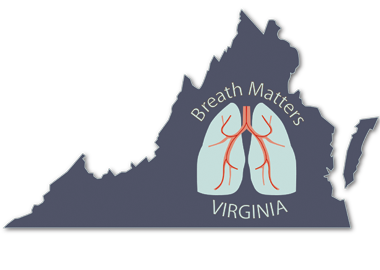Learn More about the Next Meeting

Cystic Fibrosis Resources
A list of Online Sources for learning more about Cystic fibrosis
Cystic fibrosis is a disease passed down through families
Cystic fibrosis is a disease passed down through families that causes thick, sticky mucus to build up in the lungs, digestive tract, and other areas of the body. It is one of the most common chronic lung diseases in children and young adults. It is a life-threatening disorder.
http://www.ncbi.nlm.nih.gov/pubmedhealth/PMH0001167/
National Center for Biotechnology Information, U.S. National Library of Medicine
How do people get cystic fibrosis?
Cystic fibrosis is a genetic disease. This means that people inherit it from their parents through genes (or DNA), which also determine a lot of other characteristics including height, hair color and eye color. Genes, found in the nucleus of all the body's cells, control cell function by serving as the blueprint for the production of proteins.
http://www.cff.org/AboutCF/Faqs/#What_is_cystic_fibrosis?
Cystic Fibrosis Foundation
Cystic fibrosis - a common recessive genetic disease
Cystic fibrosis (also known as CF or mucoviscidosis) is a common recessive genetic disease which affects the entire body, causing progressive disability and often early death.
The name cystic fibrosis refers to the characteristic scarring (fibrosis) and cyst formation within the pancreas, first recognized in the 1930s.[1] Difficulty breathing is the most serious symptom and results from frequent lung infections that are treated with, though not cured by, antibiotics and other medications. A multitude of other symptoms, including sinus infections, poor growth, diarrhea, and infertility result from the effects of CF on other parts of the body.
http://en.wikipedia.org/wiki/Cystic_fibrosis
Wikipedia Online Encyclopedia
What Is Cystic Fibrosis?
Cystic fibrosis (SIS-tik fi-BRO-sis), or CF, is an inherited disease of the secretory (see-KREH-tor-ee) glands. Secretory glands include glands that make mucus and sweat.
"Inherited" means the disease is passed from parents to children through genes. People who have CF inherit two faulty genes for the disease—one from each parent. The parents likely don't have the disease themselves.
CF mainly affects the lungs, pancreas, liver, intestines, sinuses, and sex organs.
http://www.nhlbi.nih.gov/health/dci/Diseases/cf/cf_what.html
The National Heart, Lung, and Blood Institute (NHLBI) provides global leadership for a research, training, and education program to promote the prevention and treatment of heart, lung, and blood diseases and enhance the health of all individuals so that they can live longer and more fulfilling lives.
How common is cystic fibrosis?
Cystic fibrosis is a common genetic disease within the Caucasian (white) population in the United States. The disease occurs in 1 in 2,500 to 3,500 Caucasian newborns. Cystic fibrosis is less common in other ethnic groups, affecting about 1 in 17,000 African Americans and 1 in 31,000 Asian Americans.
http://ghr.nlm.nih.gov/condition/cystic-fibrosis
Genetics Home Reference
Cystic fibrosis is a life-threatening disorder
Cystic fibrosis is a life-threatening disorder that causes severe lung damage and nutritional deficiencies. An inherited condition, cystic fibrosis affects the cells that produce mucus, sweat and digestive juices. Normally, these secretions are thin and slippery, but in cystic fibrosis, a defective gene causes the secretions to become thick and sticky. Instead of acting as a lubricant, the secretions plug up tubes, ducts and passageways, especially in the pancreas and lungs.
http://www.mayoclinic.com/health/cystic-fibrosis/DS00287
Mayo Clinic
Cystic Fibrosis is a genetic disease
CF affects more than 30,000 kids and young adults in the United States. It disrupts the normal function of epithelial cells — cells that make up the sweat glands in the skin and that also line passageways inside the lungs, liver, pancreas, and digestive and reproductive systems.
The inherited CF gene directs the body's epithelial cells to produce a defective form of a protein called CFTR (or cystic fibrosis transmembrane conductance regulator) found in cells that line the lungs, digestive tract, sweat glands, and genitourinary system. When the CFTR protein is defective, epithelial cells can't regulate the way chloride (part of the salt called sodium chloride) passes across cell membranes.
http://kidshealth.org/parent/medical/lungs/cf.html
KidsHealth partners with corporations, foundations, and other groups that support the mission of KidsHealth.
Cystic Fibrosis and Mucus buildup
Cystic fibrosis mostly affects the lungs, pancreas, liver, intestines, sinuses, and sex organs.
Mucus is a substance made by the lining of some body tissues. Normally, mucus is a slippery, watery substance. It keeps the linings of certain organs moist and prevents them from drying out or getting infected. However, if you have cystic fibrosis, your mucus becomes thick and sticky.
The mucus builds up in your lungs and blocks your airways—the tubes that carry air in and out of your lungs. The buildup of mucus makes it easy for bacteria to grow.
http://www.medicinenet.com/cystic_fibrosis/article.htm
Medicine Net
Cystic Fibrosis
An inherited life-threatening disease involving a genetic mutation that disrupts the cystic fibrosis transmembrane regulator (CFTR) protein, resulting in poorly hydrated, thickened mucous secretions in the lungs.
http://www.cysticfibrosis.com/
Cystic Fibrosis.com: We are patients and families from all over the world, sharing our experiences with CF and gaining power over our disease and our futures. We are joined together to grow our knowledge and reach amazing goals. Please join our community and our movement--together we are building knowledge and reaching for a cure.


